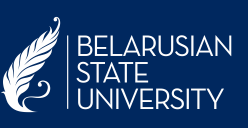
 |
Ïåäàãîãèêà èíôîðìàòèêè |
PEDAGOGY OF COMPUTER SCIENCE |
ISSN 2708-4124 |
|
HOW TO TRAIN TEACHERS TO USE TEXT GENERATIVE NEURAL NETWORKS IN THE EDUCATIONAL PROCESS M.B. Lebedeva FULL TEXT: PDF (Rus) Abstract The data of the pilot study on the problem are presented. The article substantiates the possibility and necessity of using text generative neural networks in the educational process. It is noted that such networks can help teachers and students in creating texts, generating ideas, improving educational materials and other aspects of learning. The importance of preparing teachers for the effective use of these tools through various forms of learning, including trainings, master classes, seminars and webinars is emphasized. Particular attention is paid to substantiating the importance of creating methods for using neural networks, as well as developing the necessary competencies in the field of artificial intelligence and neural networks in teachers. The need to use microlearning in the process of training teachers to use neural networks is substantiated. Key words Neural networks, prompts, training teachers to use text neural networks. microlearning. Received: 10/28/2024; accepted for publication: 11/05/2024. For citation: ________________________________________ Lebedeva M.B. How to train teachers to use text generative neural networks in the educational process. Electronic scientific and methodological journal “Pedagogy of computer science”. 2024;1-2. Http://pcs.bsu.by/2024_1-2/3ru.pdf Content is available under license Creative Commons Attribution-NonCommercial-ShareAlike 4.0 International License. About the authors: M. B. Lebedeva
References 1. Starovoit A.N., Cherpakova N.A. Using neural networks in general education organizations to improve the quality of education. Information and education: boundaries of communications. 2023$ 15(23):169-170. (In Russian) 2. Mushtavinskaya I.V. Technology for the development of critical thinking in the classroom and in the system of teacher training. Teaching and methodological manual. St. Petersburg: Karo, 2023. 144 p. (In Russian) 3. Blinov V.I., Sergeev I.S., Rodichev N.F. Microlearning - from business to education: a promising direction for the development of didactics. The Education and Science Journal. 2022; 24(9):43-67. (DOI: 10.17853/1994-5639-2022-9-43-68) (In Russian) 4. Microlearning: What to Learn Over a Cup of Coffee? EduTech. 2024; 3(59):1-48. (In Russian) 5. Monakhova G. A., Monakhov D. N., Pronchev G. B. Micro-education as a Phenomenon of Digital Transformation of Education. Education and Law. 2020; 6: 299-304. (DOI: 10.24411/2076-1503-2020-10645) (In Russian) |